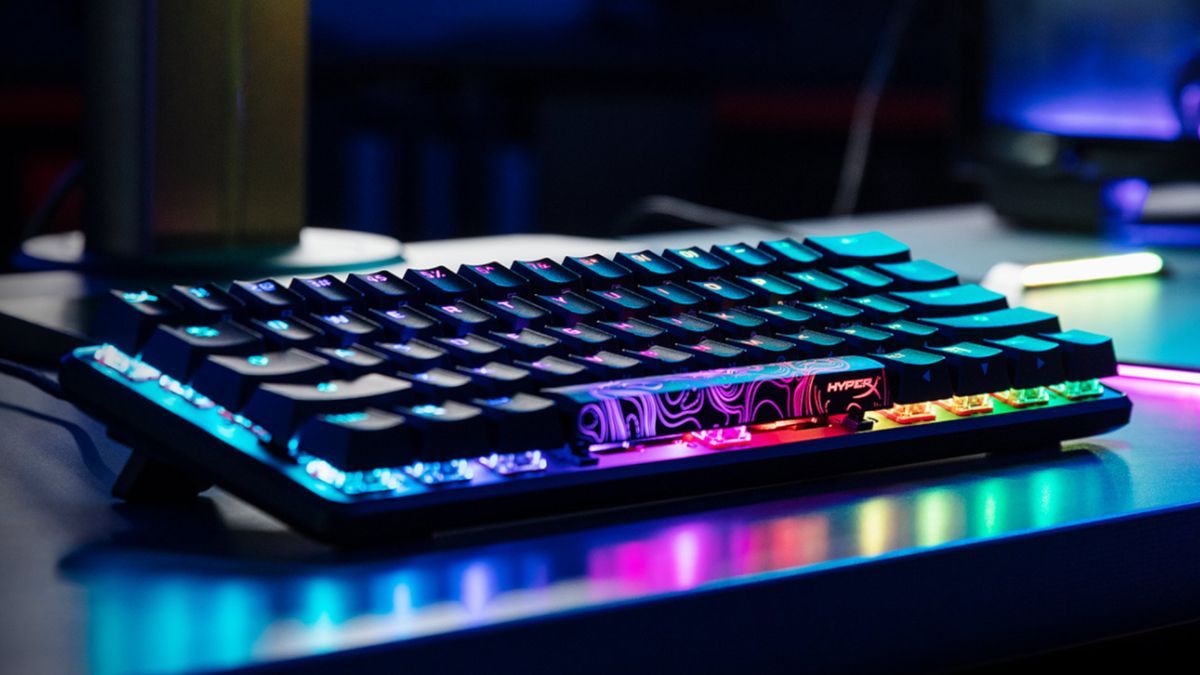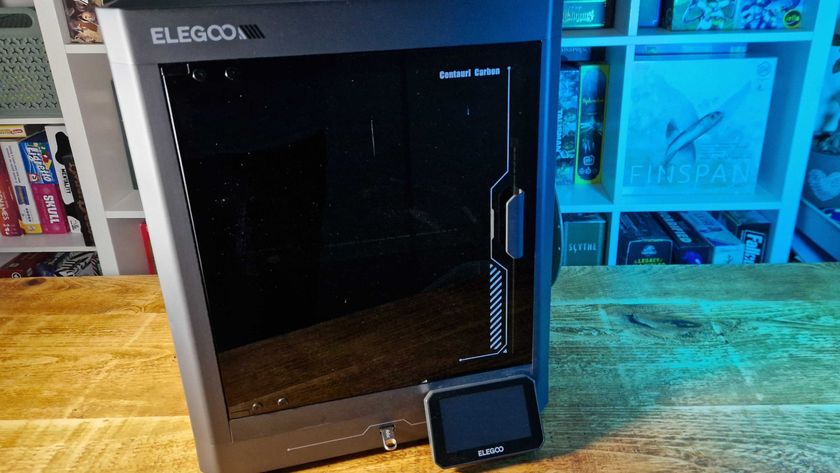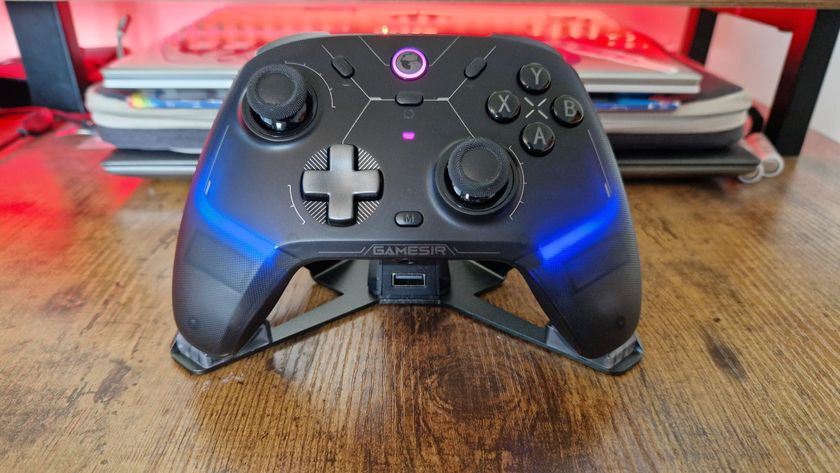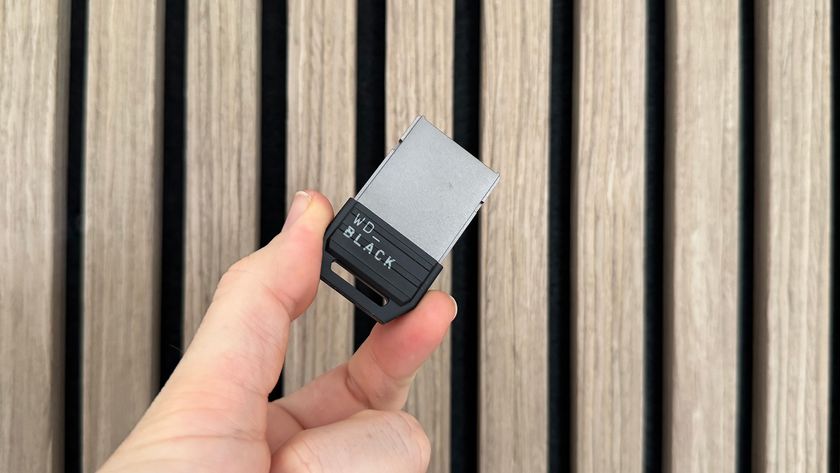12DOVE Verdict
Those looking to dive into the 60% trend will be more than happy with the durability of the body and intense speed of the HyperX Alloy Origins 60, especially at this price tag. However, if you're after a clicky response, we'd recommend checking out a different set of switches.
Pros
- +
Incredibly fast
- +
Minimalist design benefits ergonomics and desk space
- +
Premium, durable body
Cons
- -
60% deck does limit in a productivity setting
- -
Softer switches aren't as tactile
Why you can trust 12DOVE
After a brief foray into the mini keyboard space with a limited run Ducky collaboration, it looks like HyperX is looking to move permanently into the 60% form factor space with the HyperX Alloy Origins 60. This new entry takes the original Origins keyboard and scales it further down, removing the number pad, function keys, and directional arrows to reach a super efficient 1.5 x 11.6 x 4.1-inch profile.
The result is a squat but incredibly sturdy esports deck that excels in both speed and portability, making the grade as one of the best gaming keyboards in the 60% range. However, the HyperX Alloy Origins 60 lacks the productivity tools that many may be looking for when combining work and play.
Features
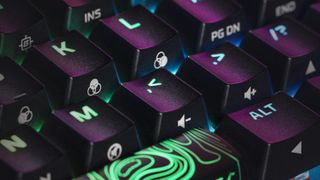
Average price: $100 / £109.99
Type: Mechanical
Size: 60%
Connectivity: Wired
Switches: HyperX Red
Keycaps: PBT
Media keys: Dual-function
Wrist rest: None
USB passthrough: None
If you prefer a softer and quieter response (that does still remain as speedy as ever), you're going to be better served here - the HyperX Alloy Origins 60 comes with HyperX's red linear mechanical switches. With 1.8mm actuation distance and 3.8mm total travel, they're certainly fast and nicely responsive with 45g of actuation force. However, they do lack that snap response you'll find in other, more tactile switches. They also initially felt a little cumbersome and spongey when coming from a clicky SteelSeries hybrid blue, and unfortunately you won't be able to swap them out.
While the switches themselves can't be customized, though, there's plenty of personalization options on the software side of things. While the Ngenuity software is a little basic, it gets the job done, and the fact that you're getting per-key RGB and macro support here shouldn't be taken for granted at this price point either. The Alloy Origins 60 does offer onboard memory, but this is less well signposted in the software and it's a little difficult to quickly swap and check presets.
There are a few extra bonuses here that might offer a better quality of life as well. A detachable USB-C cable means the desk is kept clear if you're going to be switching keyboards for work and play, and also makes for a far more portable system. Plus, loading the box with extra key caps offering a more unique design is a nice touch.
Design
Slimming the Alloy Origins down to 61 keys, the mini version certainly keeps things streamlined. While the function row and command keys have been removed, the side of each key clearly displays alternate functions that make up a secondary suite of controls, accessed using the function key.
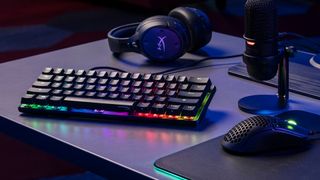
These minimalist designs are certainly forming popular fashion these days, offering the bare minimum while keeping things super clean and highly responsive. Not only are you saving your desk space with this design, making more room for sweeping movements from the best gaming mouse or best wireless gaming mouse, but keeping your arms in line with your shoulders also makes for a more ergonomic position.
While it's certainly smaller, the HyperX Alloy Origins 60 is by no means lighter. The entire body is made of a sturdy aluminium which, while adding a few extra pounds, makes it backpack-resilient. Plus, there's no chance of the Alloy Origins 60 sliding across the desk during more intense sessions either.
Such a small selection of keys does take some getting used to - as do the severe corners and almost non-existent bezels. There's absolutely no edge space on this keyboard, and without a palm wrest, that can prove uncomfortable at certain heights.
However, the whole thing feels incredibly premium and far more solid than other gaming keyboards in this $100 / £110 price range.
Performance
As mentioned previously, the softer mechanical switches do take some getting used to. However, that lack of tactile snap won't get in the way of a reflex reaction. Once you become one with the keyboard, those instinctive moves are incredibly fast - requiring only the slightest nudge of a key to trigger.
That hyper-sensitivity does hold the deck back a little in a productivity setting, but when in a particularly energetic Apex Legends round (and let's face it, that's where this keyboard was designed to excel) those milliseconds make all the difference. You can fly through commands at incredible speeds here once you've got some practice in. And once your macros are committed to muscle memory, there's real magic happening under the deck.
The softer key presses here make for a much quieter experience too (which your teammates will certainly thank you for if you're not using a noise-cancelling microphone). However, after heavier use over a couple of weeks, we did notice a metallic twang on certain larger keys, particularly in the left hand side of the deck, which was some cause for worry. There was no discernible drop in performance on these keys, but once you're tuned into the sound it can be a little off-putting.
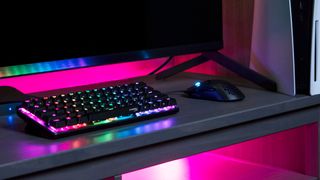
The keycaps themselves aren't as textured for grip as others, but we never found ourselves slipping and that was likely down to the curved grooves that are slightly more pronounced here. It's a pleasant typing experience, and one that those who can't forgive rougher key caps will certainly appreciate.
It's important to remember that this is a gaming keyboard designed for the kind of high octane speed required by esports pursuits, though. With many more of us working from home it's worth noting that this might not be the best performer if you're looking to transition between work and play on the same deck.
In addition, those softer keys (combined with a low actuation force) made for a lot of accidental key presses in everyday use. Plus, that 60% form factor was simply too limiting to perform a wide range of daily tasks. Having to hold function to move between cells in a spreadsheet, or even between words and letters on a page, was a particularly frustrating drawback.
Overall - should you buy it?
The HyperX Alloy Origins 60 is an excellent mini keyboard if you're looking to dive into the 60% trend and don't want to compromise on your speed for a low price tag. While those who prefer a tactile response will be a little underwhelmed at first, there's no denying the extraordinary value in this $100 / £110 deck for more competitive players looking to travel without worrying about hurting their gear. That's the target market here, and HyperX has done a stunning job appealing to this demographics.
All the same, if you're looking for an everyday workhorse that can perform just as well in work as play, we'd recommend seeking out a larger deck.

Managing Editor of Hardware at 12DOVE, I originally landed in hardware at our sister site TechRadar before moving over to GamesRadar. In between, I've written for Tom’s Guide, Wireframe, The Indie Game Website and That Video Game Blog, covering everything from the PS5 launch to the Apple Pencil. Now, i'm focused on Nintendo Switch, gaming laptops (and the keyboards, headsets and mice that come with them), PS5, and trying to find the perfect projector.
